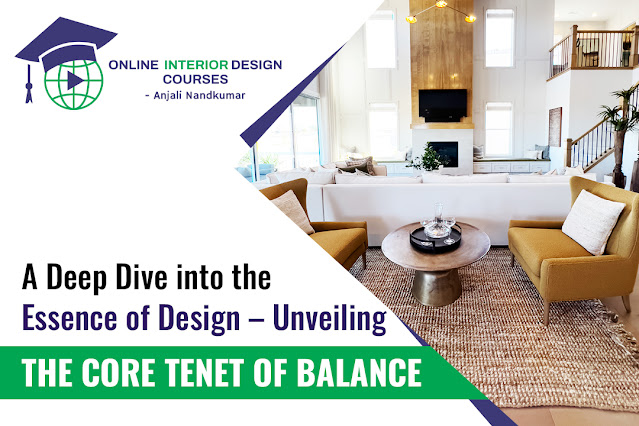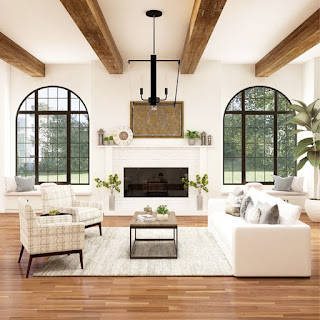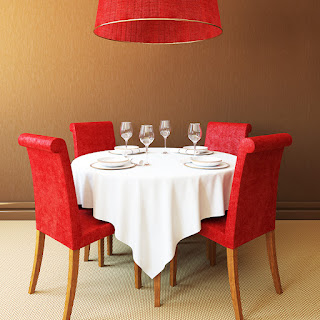A Deep Dive into the Essence of Design – Unveiling the Core Tenet of Balance
Upon entering a room, some spaces
immediately draw you in with their charm, while others seem haphazardly
arranged. Ever wondered about the root cause of this discrepancy? The key lies
in achieving a delicate equilibrium in design.
In
the realm of interior design, attaining visual harmony takes precedence. This
inaugural blog in our series, "Foundations of Design: Principles and Elements," embarks on an
exploration of the fundamental aspects that contribute to the creation of
well-balanced and aesthetically pleasing spaces.
The primary focus of our scrutiny
is the concept of 'Balance.
BALANCE
Balance is the linchpin of
success in various aspects of life, whether it's work, personal relationships,
or the visual appeal of your living space.
In the context of interior
design, we delve into the idea of visual balance, where objects within a space
coexist harmoniously, each carrying equal weight and significance. Neglecting
this balance can result in the viewer's attention being fixated on one focal
point, causing the rest of the space to be overlooked.
To address this, mastering the
art of balance becomes imperative, and there are three fundamental types:
Symmetrical Balance or Formal
Symmetry, as the name suggests,
revolves around an imaginary central line dividing objects. What lies on one
side mirrors the other, creating a formal and predictable aesthetic.
Symmetrical balance finds its place in modern bedrooms and living rooms,
offering a clean and soothing ambiance.
Asymmetrical Balance or Informal
Asymmetry introduces an element
of unpredictability, deviating from the mirrored precision of symmetrical
balance. While objects on one side differ from the other, there exists
synchronization and visual balance along the imaginary central line. This
approach injects vitality into spaces, steering clear of monotony.
Radial
Tailored for circular objects,
radial balance emanates from a central point, resembling the spokes of a wheel
or the sun's rays. Circular tables surrounded by chairs or concentric circles
on the ceiling exemplify this balance, creating a comfortable design for group
settings.
As we conclude this exploration
of balance, stay tuned for the next chapter, where we unravel the captivating
world of 'Rhythm' in our ongoing
series. Acquire the skills, grasp the principles, and transform your living
spaces into harmonious sanctuaries.
Ref. blog- https://interiorcourses.in/blog/know-how-to-restore-balance-in-your-home-office






.jpg)

Comments
Post a Comment